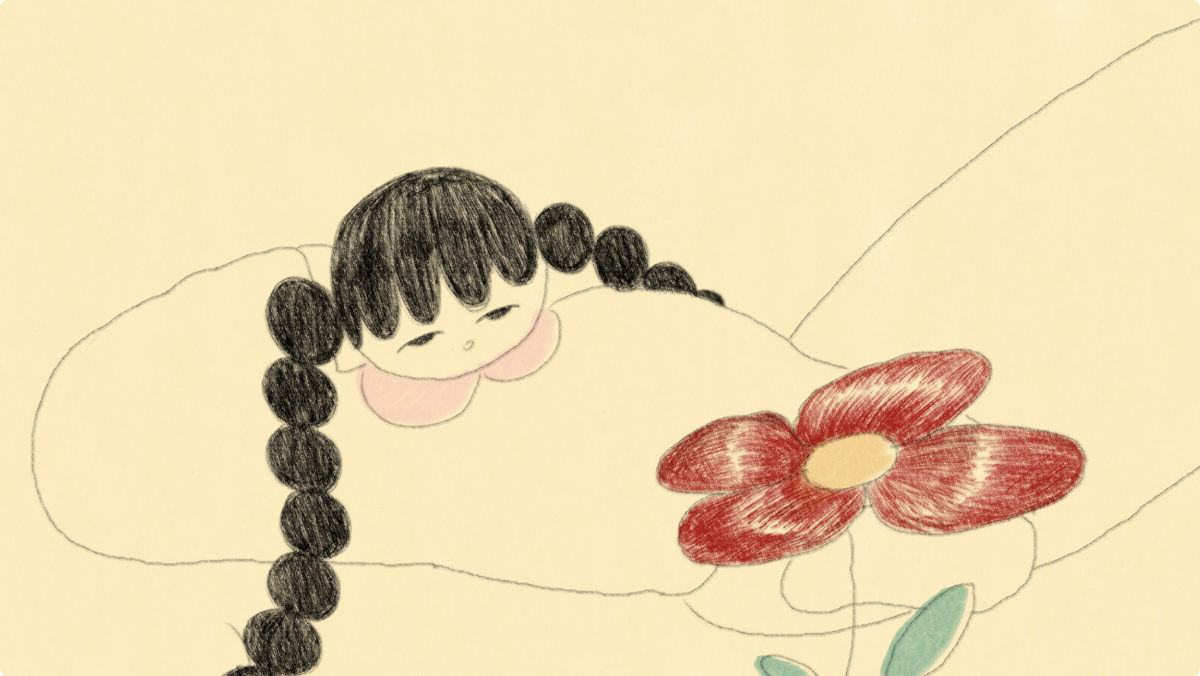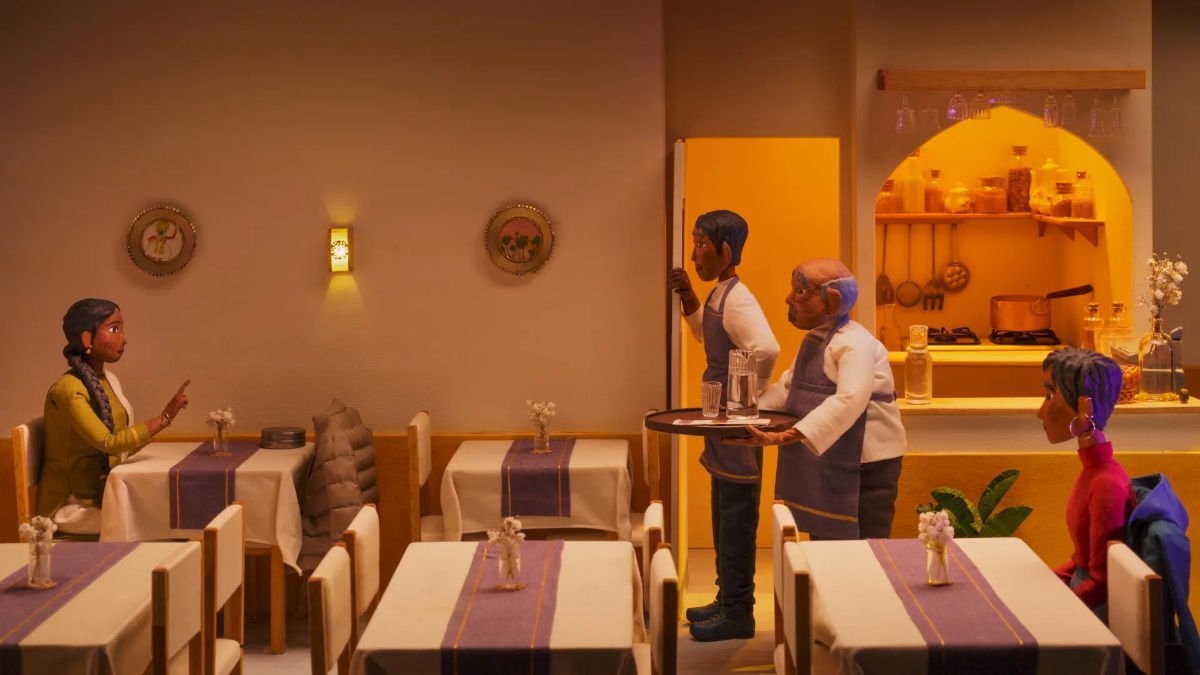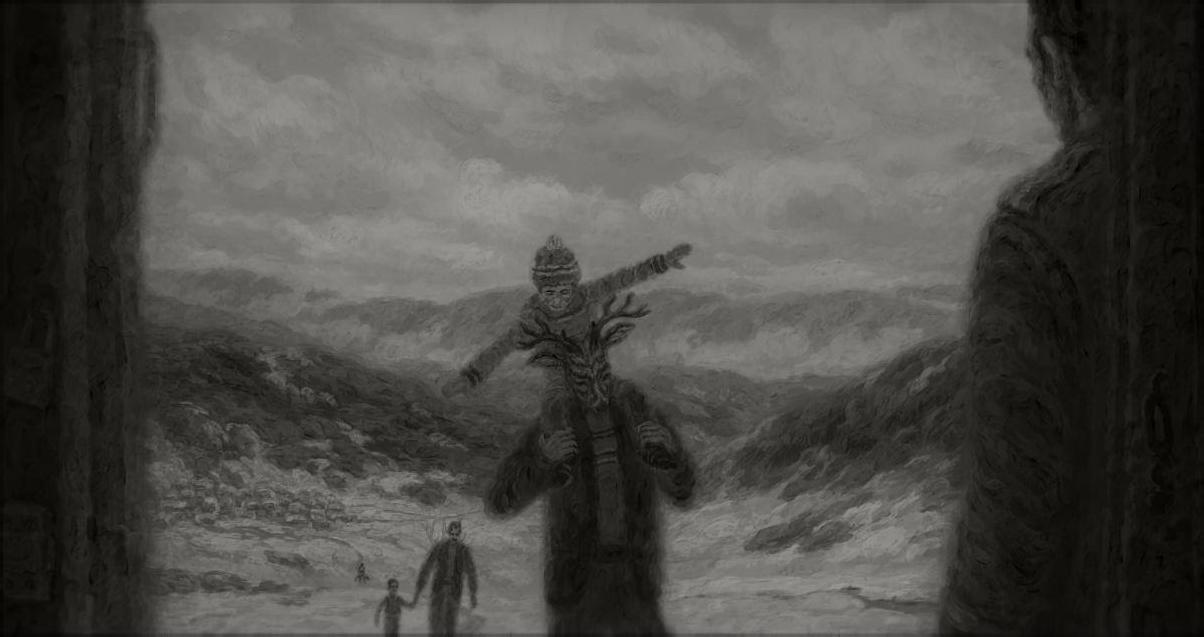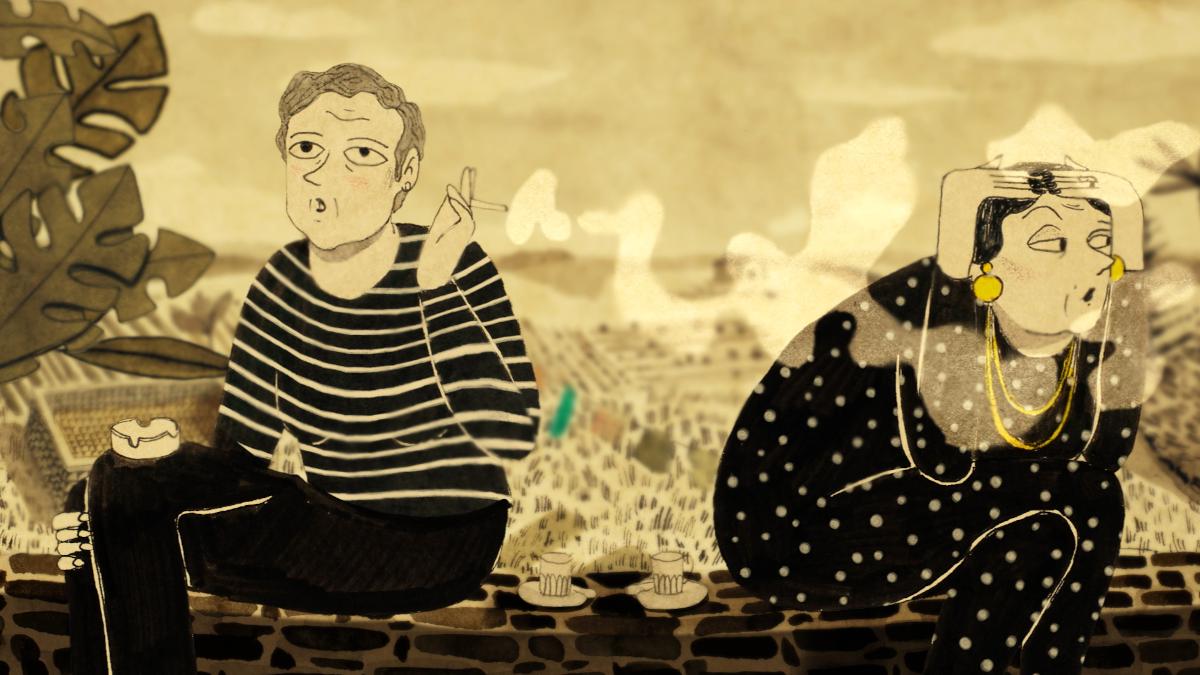'The House of Loss' by Jeon Jinkyu: Film Review
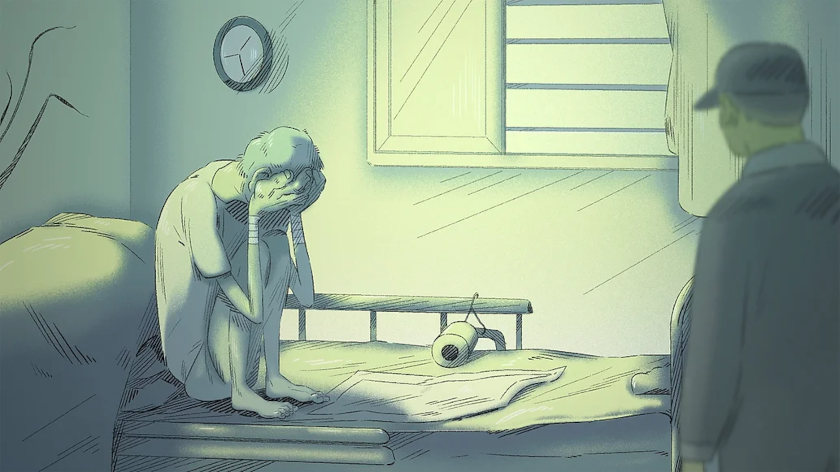
South Korean animation director Jeon Jinkyu reconstructs old life at a senior's home as a harrowing thriller in his student film, 'The House of Loss' (at the Tokyo University of the Arts, produced by Koji Yamamura). The 2D animation short narrates the life of a young man during his military service at a senior home -in which war veterans suffer from dementia, and they are unable to separate traumatic past from joyful present events.
The first scene sets the tone: all army conscripts need to shave their heads, and we watch little people (in the manner of Koji Yamamura's 2002 Oscar-nominated short 'Mt. Head') living on top of the person's head -but here gradually being shaved and eradicated. The film's narration (voiced calmly by Kim Sang Yoon) allows for audience distance. A well-thought-of device, since what is depicted on screen can sometimes be the animation equivalent of Edvard Munch's famous 'The Scream' work.
The image of a clock whose digits have stopped working or swing according to their own device is paramount in the film; so is the landscape of big skyscrapers among with the senior home is situated. In essence, the senior home is posited as a no-man's land plane; a place now situated where it does not belong, for people who no longer belong.
Jeon Jinkyu is observant in his daily scenes with the elderly, and photographs bring out the past (also Korea's past) that residents can no longer recall. His editing (especially in the fireworks sequence) serves admirably the bifurcation between the happy present and the troubled past, and the music ( Mothervibes, Park Good) becomes as discreet as if not to upset the senior home residents.
His limited color palette that alternates between purples, blues, and greens never lets you get away from its subject, having your eyes constantly on the screen. Seeing is a central concern in 'The House of Loss', and one that will provide the film's end katharsis.
'The House of Loss' works like an animated chronicle of time losing its meaning, and measures our own reaction to that; it is acute, powerful, but also brilliantly empathetic -stays in your retina long after it ends.
Watch 'The House of Loss'
contributed by: Vassilis Kroustallis




